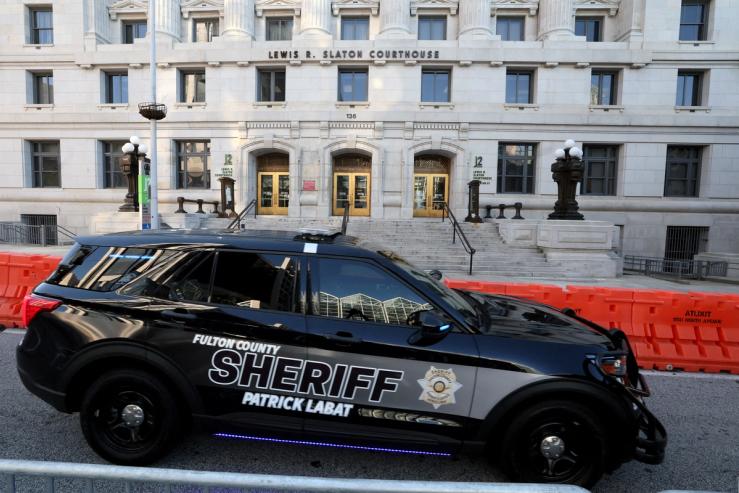The News
Threats and instances of political violence are on the rise in America. A woman in Chicago was arrested after allegedly threatening to kill former U.S. president Donald Trump and his 17-year-old son Barron Trump. Recently, a Texas woman was charged for making death threats against the federal judge overseeing Trump’s Jan. 6 criminal case, and authorities in Georgia are investigating threats against the grand jurors who indicted Trump for election interference. Earlier this month, the FBI killed a Utah man who was being investigated for making “credible” threats against President Joe Biden.
SIGNALS
The indictments and investigations into Trump are leading to an increase in the number of people who think force is justified to return him to the White House, a recent University of Chicago found. But a radicalized public won't necessarily lead to actual violence, unless leaders like Trump incite or inspire people to act, researchers said. • 1 On the left, the study noted increased support for violence to restore federal abortion rights, but there's little indication that groups would act on that view.
Another mass gathering like the Jan. 6 Capitol riot isn't the top concern for researchers, said Robert Pape, the University of Chicago professor who led the research. Instead, "the biggest thing we have to worry about is lone wolf violence that is going to be extremely difficult to predict," Pape said. That's harder to guard against because "we cannot protect every possible target that the extremists could go for."• 2
Reuters tallied 213 cases of political violence since Jan. 6, 39 of which were fatal, finding that the country is "grappling with the biggest and most sustained increase in political violence since the 1970s." Attacks are now aimed more at people than property, with explanations for the violence ranging from financial anxiety to disdain over the country's changing demographics to the "coarsening of political rhetoric in the Trump era."• 3
The racketeering indictment against Trump and 18 others in Georgia largely focused on the threats made to election worker Ruby Freeman, who was falsely accused of election fraud. The inclusion of those charges, Jennifer Rubin argues, is a just way to hold Trump and his allies accountable "for infusing our politics with violence and the threat of violence."• 4
The Washington Post, Fani Willis puts violence front and center



